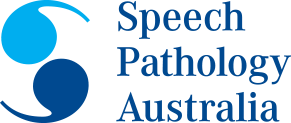The National Disability Insurance Scheme (NDIS) has been an amazing advancement in supporting Australians with disability. As speech pathologists, we love that it has helped increase access to speech pathology for many families. We also love the focus on early intervention. Parents now understand the importance of seeking help for their children at an earlier age. One key goal of the early intervention branch of the NDIS is that early access to multi-disciplinary help will mean that many children will need help for a shorter time. The NDIS is an insurance scheme – not an endless supply of government funding. So, as providers, we need to ensure the speech pathology treatment is in line with evidence-based practice and NDIS guidelines. This blog will explain how we provide speech pathology services for our NDIS clients and why it is done that way.
NDIS Goal setting and Speech Pathology
When you first apply for an NDIS plan, you share your yearly goals with the NDIS planner. These goals will influence what supports you receive.
Similarly, when you meet with your speech pathologist, you share what your communication goals are for your child. Together, you and your speech pathologist work out what the highest priority is for your family. This helps focus the therapy approaches that are used.
Depending on the nature of the disabilty, some communication difficulties may be life-long. Evidently, NDIS won’t fund speech pathology visits weekly for a life-time. The nature of speech pathology and the NDIS is to help the individual participate in everyday activities. How the individual communicates in these daily activities will look different from person to person.
Talk HQ speech pathologists regularly review communication goals with parents. This ensures that the therapy is helping to progress the child’s participation in everyday activities. We welcome parents’ and carers’ input in the goal setting sessions. It is vital that therapy goals align with how the child is functioning in their home, community and schooling environment.
Another important aspect of a child’s speech pathology intervention is to empower the child’s carers to advance the child’s ability to communicate. Carers may include parents, teachers, relatives, family friends, support workers or other community workers. This is known as capacity building.
Capacity Building, Speech Pathology and the NDIS
One of the funding buckets of the NDIS is called “capacity building”. Capacity building refers to building the skills of the child to become more independent. In terms of speech pathology for children, it also refers to building the skills of parents and carers so they can independently nurture the communication skills and independence of their children.
Research shows that parent/carer training is so important to achieve greater outcomes. In a therapy session, this may mean that the speech pathologist coaches the parent in how to practice strategies at home. When the parent is at home, they use the communication strategy in the natural home environment where it is more meaningful to the child.
For children with alternative and augmentative communication, this may mean that therapy sessions focus more on coaching family members and support workers about how to model language. This enables the child to continue to have opportunities to communicate beyond the four walls of the therapy room. This truly helps the child participate in everyday activities like using their device to request McDonalds instead of going home.
Parent training/coaching makes sense. After all, your child spends most of their day with you and their other carers (such as teachers). This is why capacity building is so important and great value for money.
When we include capacity building goals into our speech pathology sessions we are providing evidence based practice. It also avoids the potential for co-dependence between the speech pathologist and the family. The family and other supports are better equipped to continue to provide support for the child without lifelong input from the speech pathologist.
Supports must be value for money
Another key feature of NDIS funding is that funded services are value for money. As speech pathologists, we need to ensure that our therapy intervention meets the “reasonable and necessary criteria” outlined by the NDIS.
As health professionals, we want to ensure we provide value for your money. It all comes down to goal setting and measuring outcomes. If we find that we are not getting the expected progress, the speech pathologist will need to make some clinical decisions:
- Perhaps the therapy approach needs to change.
- Maybe the child needs a break from therapy.
- Maybe the child needs to stop speech pathology and use funds to access a different type of support at that stage of their life.
- Alternatively, the family may need to access other supports or therapies to address other priorities first before speech pathology can commence/continue. Other supports may include psychology or occupational therapy for example.
Ethically, the speech pathologist needs to make the decision whether the current speech pathology supports are value for money. They need to use their clinical reasoning skills to make the decision.
The NDIS requires the allied health provider to report on the outcomes relating to the therapy goals. Speech pathologists also have to report if there is no progress.
Bootcamp Talk Blocks
TalkHQ offers Bootcamp Talk Blocks. This model encourages capacity building therapy. A Bootcamp Talk Block consists of 12 weekly therapy sessions. This is followed by a 12 week consolidation period. Agreed goals are established at the start of the Talk Block. These goals are evaluated at the end of the 12 weeks.
During the consolidation period, the family uses the time to put the strategies into practice. This is what capacity building is.
Many TalkHQ families have trialled the Bootcamp Talk Blocks and have found it has worked well for them. Their child continues to progress as therapy has focussed on capacity building as well as focussing on the child’s communication difficulty.
This has been a very useful option for families who have had their NDIS funding reduced.
Speech Pathology Group Therapy and the NDIS
Group therapy may also be another therapeutic support that would be suitable for your child. The NDIS funds group therapy. It is a great way for your child to build communication skills within a more naturalistic and social setting.
In each of our group therapy sessions, the speech pathologist shares strategies with the parents and carers so they can help with capacity building of the child’s supports.
For more information about the type of therapy groups, click here.
Allied Health Assistants
NDIS also funds allied health assistant (AHA) services. In some circumstances, the speech pathologist may decide that AHA sessions would be a more appropriate choice of support. Speech Pathologists develop the treatment program and AHAs implement the program with the child.
For more information about accessing AHA services, read this blog and talk to your speech pathologist.
Next Step
The key features of speech pathology and NDIS is goal setting, outcome measurement and capacity building.
Speak to your speech pathologist to get more individual insights into your child’s therapy journey and progression.
written by Julie Sexton.







